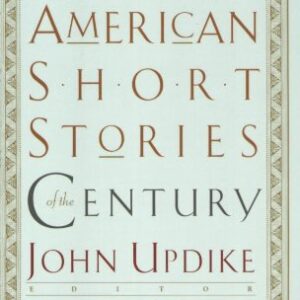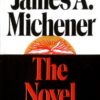Product Description
Of all the writers whose work has appeared in the series, only John Updike has been represented in each of the last five decades, from his first appearance, in 1959, to his most recent, in 1998. Updike worked with coeditor Katrina Kenison to choose the finest stories from the years since 1915. The result is "extraordinary . . . A one-volume literary history of this country's immeasurable pains and near-infinite hopes" (Boston Globe).
Amazon.com Review
At age 67, the perennially youthful John Updike may at last qualify as something of an elder statesman. But the Best American Short Stories annual--whose greatest hits package Updike has now assembled--is almost a generation older, having commenced publication in 1915. This staying power allows the hefty Best American Short Stories of the Century to perform double duty. It is, on the one hand, a priceless compendium of American manners and morals--a decade-by-decade survey of how we lived then, and how we live now. Yet Updike very consciously avoided the sociological angle in making his selection. "I tried not to select stories because they illustrated a theme or portion of the national experience," he writes in his introduction, "but because they struck me as lively, beautiful, believable, and, in the human news they brought, important." In this he succeeded: the 55 fictions that made the grade are most notable for their human (rather than merely historical) interest.
So who got in? There are a good number of cut-and-dried classics here, including Hemingway's "The Killers," Faulkner's "That Evening Sun Go Down," and Philip Roth's acidic spin on religious connivance, "Defender of the Faith." In other cases, major authors are represented by relatively minor works. Yet it's hard to quibble with the inclusion of Willa Cather, F. Scott Fitzgerald, Tennessee Williams, J.F. Powers, Eudora Welty--particularly when you take into account that their second-tier creations are fully the equal of anybody else's masterpieces. And the final third of the book really does constitute an honor roll of contemporary American fiction, with brilliant entries by Saul Bellow, Donald Barthelme, Raymond Carver, Tim O'Brien, Bernard Malamud, Cynthia Ozick, John Cheever, and Vladimir Nabokov. (For the latter, Updike actually succumbed to his own idolatry and bent the rules for admission--but nobody who reads the hallucinatory "That in Aleppo Once..." will regret it.) It goes without saying that fiction fans will be complaining about the editor's sins of omission well into the next century. But no matter how you slice it, this remains an elegant and essential advertisement for the short form. --James Marcus
 Digabyss.com
Digabyss.com



Reviews
There are no reviews yet.